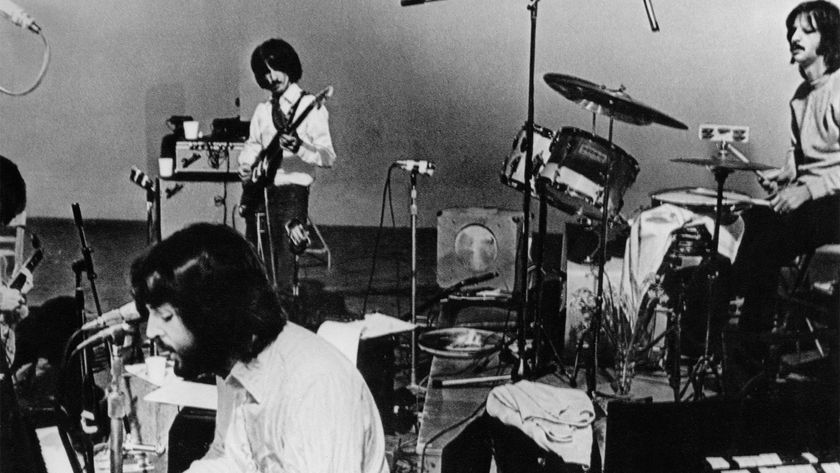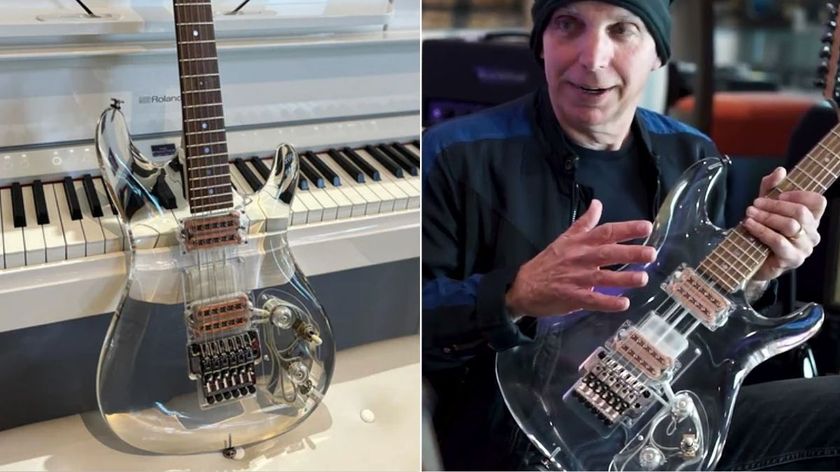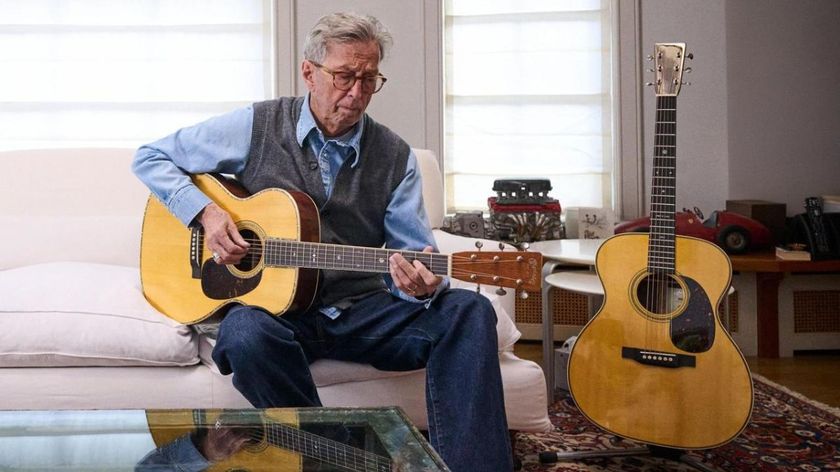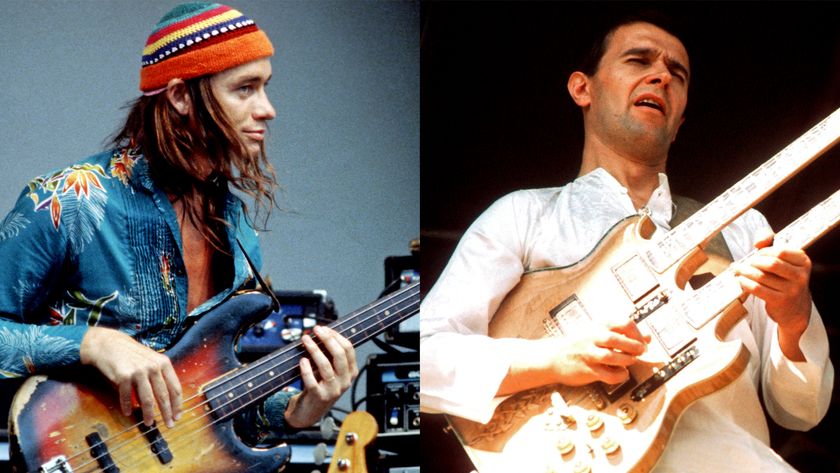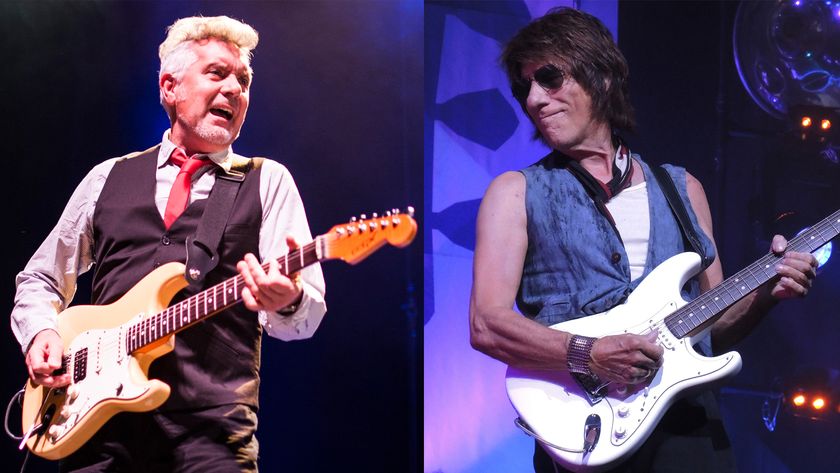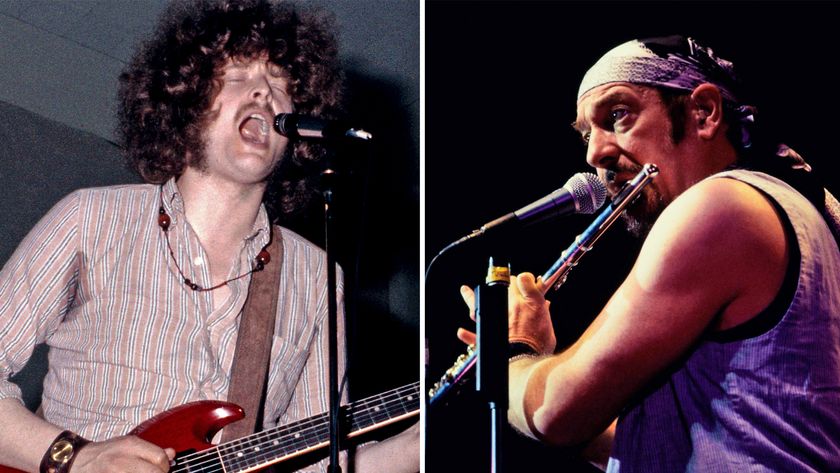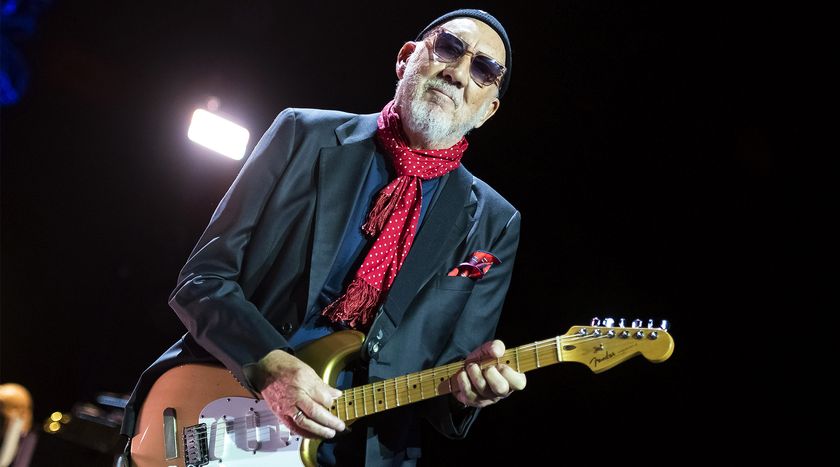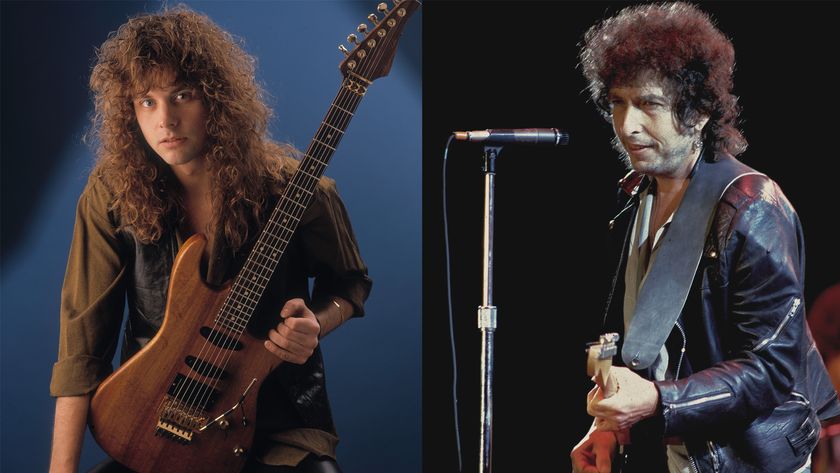“I thought, Robert Fripp’s a good guitarist. Maybe we could do something.” Andy Summers isn’t a fan of King Crimson, but his collaboration with Fripp came along at just the right time
He’d made his name in the mainstream, but after several albums with the Police, Andy Summers was looking for another guitarist to get weird with
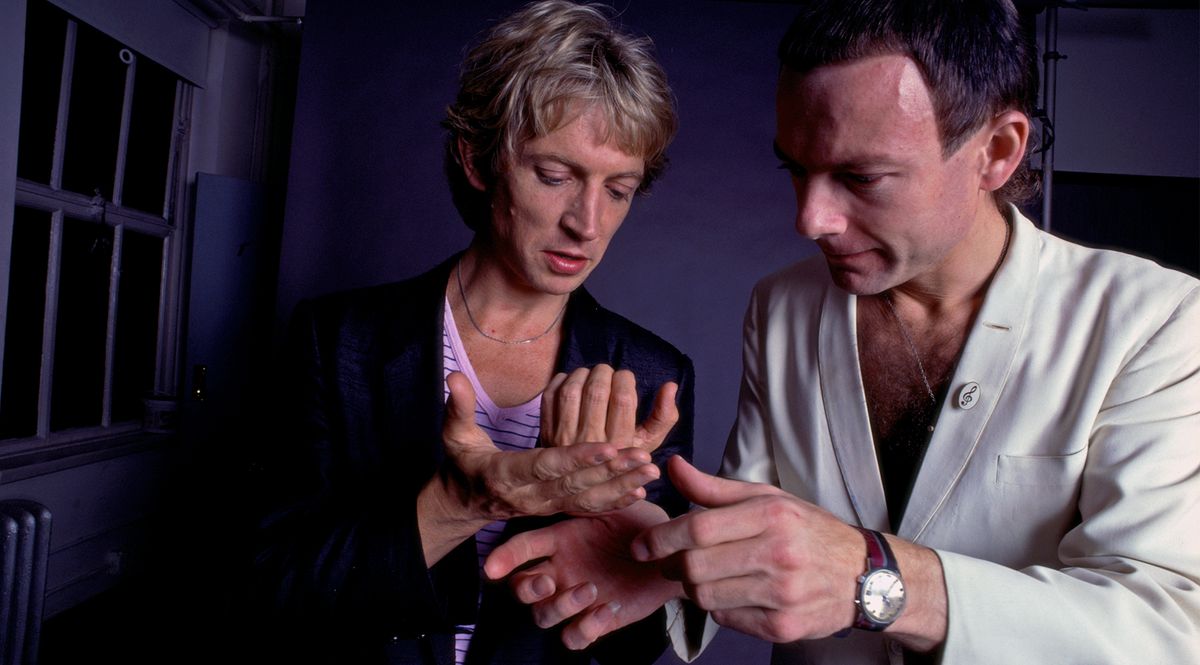
In the early ‘80s, Robert Fripp and Andy Summers formed an unlikely alliance, producing two experimental albums that, against all odds, found harmony by combining their contrasting, catch-all stadium rock and avant-garde progressive rock playing styles.
Their collective feat can now be deemed even more impressive after Summers admitted to Guitarist that he wasn’t a King Crimson fan going into the project. Yet he felt drawn to Fripp by a “cosmic connection” that willed their disparate sounds together.
“I wasn’t into King Crimson at all,” Summers says, bluntly. “Definitely not my kind of music.”
Yet fate and geography made their worlds collide.
“Robert and I come from the same area of England," Summers explains. "I was part of the Bournemouth music scene, and you heard about this ‘weird kid’ out in Wimborne — and it was Robert Fripp, because he has a certain style."
It didn't take long for their paths to cross. At age 16, Summers became the guitarist for a hotel band, but it didn't last long. "I got fired for trying to pick up hotel girls," he says. "And Robert took over the ‘guitar seat,’ let’s call it. So there’s a sort of cosmic connection there, I suppose.”
Years would pass and, as the ‘60s wound into the ‘70s, King Crimson were shocking audiences with their skin-prickling take on progressive rock.
Get The Pick Newsletter
All the latest guitar news, interviews, lessons, reviews, deals and more, direct to your inbox!
Summers took a different path, however. After stints in various London bands, including Zoot Money's Big Roll Band, he moved to America where he spent five years studying classical guitar at university, before leaning on Fripp to help reconnect him with the music scene.
That would eventually lead him to working in various bands and take jobs as a session musician, which is where he met Sting and drummer Stewart Copeland on a recording gig. The three would form the Police soon after.
“I subsequently became the world’s most famous guitarist with the Police,” Summers says.
However, his talents and creativity went well beyond the band’s radio-friendly new wave sound. “I was starting to feel somewhat musically hemmed in by being in that band. I wanted to stretch my legs and play with somebody else, just to see how I’d do, almost like an experiment on myself.
Enter Fripp for a third time.
“At that time, Robert was living in New York, and I was there all the time," Summers explains. "So he popped into my mind: Oh yeah, Robert Fripp. He’s a good guitarist. Maybe we could do something together.
"It started with a fairly casual hook-up when we went to practice in a photographer’s flat in Soho.”
The casual nature of their hangouts soon developed into two records: I Advance Masked, in 1982, and, two years later, Bewitched.
A compilation of previously unheard cuts, Mother Hold the Candle Steady, was recently unearthed and released as part of a special Complete Recordings reissue. Speaking to On the Record last year, Summers said he was "knocked out" upon hearing the tracks and surprised to realize they'd been left on the cutting-room floor.
“I went, ‘God, why didn't we do this? Why was I throwing those out?’ Because I was essentially the producer," he explains. "But listening to some of these songs all these years later, I thought I'd listen to them and think, Oh, my god, well, I see why. They were no good. They're terrible. That's why we didn't use them.
“But they weren't. They're all really much like the other tracks that we actually put out. And my god, it's a good album.”
In related news, Steven Wilson has explained what he learned about Fripp and King Crimson's music when remixing their change-making debut album, In the Court of the Crimson King, while Steve Vai has championed Fripp's former foil, Adrian Belew, believing he is “underrated.”
Both guitarists have played under Frank Zappa and are now celebrating King Crimson's '80s output together in Beat — and Fripp was on hand to offer Vai some sage advice.
Summers, meanwhile, has told Guitar Player how the Police's evolution amid punk’s rise made him a better player, and he's claimed he's written the world's most-played guitar riff.
A freelance writer with a penchant for music that gets weird, Phil is a regular contributor to Prog, Guitar World, and Total Guitar magazines and is especially keen on shining a light on unknown artists. Outside of the journalism realm, you can find him writing angular riffs in progressive metal band, Prognosis, in which he slings an 8-string Strandberg Boden Original, churning that low string through a variety of tunings. He's also a published author and is currently penning his debut novel which chucks fantasy, mythology and humanity into a great big melting pot.





